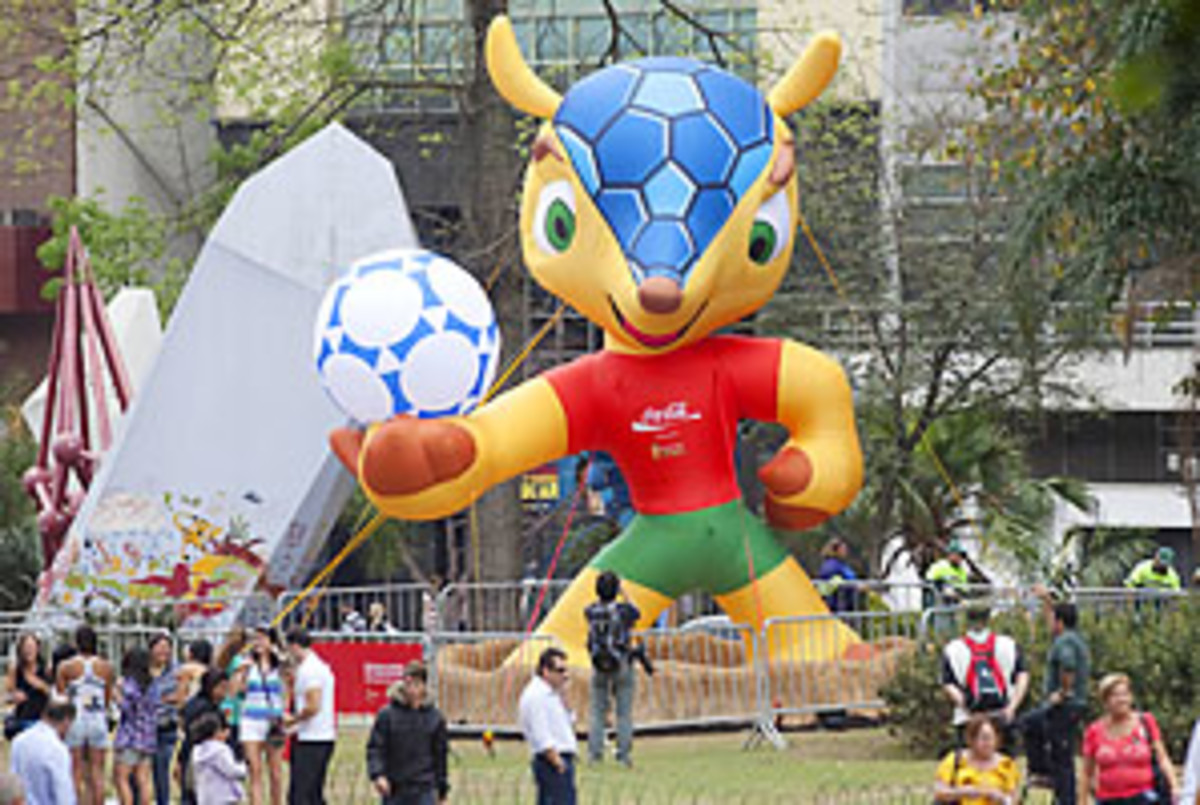Armadillo mascot for 2014 World Cup named 'Fuleco'


SAO PAULO (AP) -- Brazilians selected the name "Fuleco'' for the armadillo mascot for the 2014 World Cup after a three-month vote derided by fans as undemocratic.
FIFA said Sunday more than 1.7 million people in Brazil took part in the vote to select the name. The other choices were Zuzeco and Amijubi.
Polls across the country had shown the vast majority of Brazilians were not pleased with the names picked for public voting, and critics said organizers should have allowed fans to choose other names. There was even an online petition demanding a more democratic approach in which the public could make suggestions.
Fuleco comes from the Portuguese words "futebol'' (football) and "ecologia'' (ecology), and FIFA said it "seamlessly represents the way in which the FIFA World Cup can combine the two to encourage people to behave in an environmentally friendly way.''
Soccer's governing body said Fuleco received 48 percent of the vote, while 31 percent went for Zuzeco and 21 percent for Amijubi.
Amijubi comes from the words "amizade'' (friendship) and "jubilo'' (joy), while Zuzeco comes from "azul'' (blue) and "ecologia'' (ecology).
FIFA said the three options were chosen by a "high-profile judging committee'' that included former Brazil player Bebeto and Brazilian celebrities and politicians. Organizers said it wouldn't have been feasible to allow fans to send in suggestions because the names needed to fulfill several legal requirements involving trademarks and other rights.
FIFA said studies showed that the top terms used by the public to describe Fuleco included "Brazilian,'' `'nature,'' `'friendly'' and "passion for football.''
"This clearly shows that Brazilians already recognize the significance of the armadillo as an important ambassador for the 2014 FIFA World Cup and his role in inspiring fans all over the world with his passion for the sport and his country,'' FIFA said in a statement.
The armadillo, which is in danger of extinction, has three distinctive bands on its shell and is found in northeast Brazil. It was introduced as the mascot in September.
The armadillo rolls up into the shape of a ball when threatened. The mascot carries the colors of the Brazilian flag - the armadillo is yellow, with green shorts and a blue shell and tail. It is dressed in a white shirt with the words "Brazil 2014'' written on it.
The mascot of the 2010 World Cup in South Africa was a leopard called Zakumi. The 2006 tournament in Germany featured a lion called Goleo.
